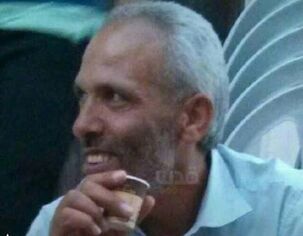8 mar 2017
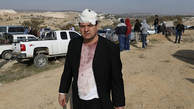
MK Ayman Odeh returning to the scene of the Umm al-Hiran incident where he was injured
In a heated verbal exchange of allegations and recriminations in the Knesset over the controversial incident in Umm al-Hiran, minister of internal security and the leader of the Joint List engage in verbal boxing match, delivering a combination of vitriolic remarks against one another, both accusing the other of deliberate incitement and deceit.
The Knesset saw fiery discussions on Wednesday afternoon for the second time in one day over a controversial incident which took place in January in which a Bedouin man, Yaqoub Abu al-Qiyan, was shot dead by police after they originally claimed he deliberately tried to run them over during a demolition of illegal homes in Umm al-Hiran.
Joint List leader MK Ayman Odeh set the tone of the discussion as he turned to Public Security Minister Gilad Erdan, shouting "at minimum we deserve that you, the Minister of Internal Security, resign."
Erdan lashed back, accusing Odeh of "lying to the media saying that he was an innocent man who got caught up in the incident."
Odeh was among those injured during the riots that ensued.
Erdan then then turned to address Odeh directly, claiming "You came to incite the whole population, for blood to be spilled."
Ayman's then made a proposal to establish a parliamentary committee that would investigate the police's and officials' conduct, which was rejected. Taleb Abu Arar (Joint List) was removed during the deliberations for unbecoming behavior.
The heated talks came just hours after the Knesset approved the preliminary reading of two versions of the controversial bill to limit decibel levels for religious institutions, known as the Muezzin Bill.
"If anyone thinks that the Arab population will be satisfied by stuttered, half-hearted apologies he is gravely mistaken. After the mountain of deceit and incitement has crumbled all that’s left are two families who world was destroyed. The minimum they deserve is the truth, and that is also the obligation of every person sitting here today," said Odeh, who returned Erdan’s claim back at him, claiming he "lied and incited."
Odeh demanded that an independent investigation be launched in order to answer fundamental questions surrounding the incident.
"We demand to know who decided to violently evacuate the village while negotiations were still taking place, who decided to do it at night, who shot and killed Yaqoub Abu al-Qiyan, who gave the order to let him bleed to death without medical aid, who decided to incite against him and the residents of Umm al-Hiran?"
Erdan then took the podium, firing back in a second round of the vitriolic exchange.
"Here we meet again to discuss a subject which was already discussed and voted on about two or three weeks ago,” he began.
“In my naivety I thought that whoever is putting up a show as if he aims to bring two populations closer or calm things down will understand that the debate has been exhausted and will allow an external objective body, which is the Ministry of Justice, to examine what happened during that difficult and sad day.
"But it turns out that when you don’t have any real accomplishments with which to present your public, then your main objective will always be to generate gains, incite hearts, slander and try to create strife between populations that live in coexistence in Israel," Erdan continued.
"It's not by chance that you won't find any MK from the Joint List who will recognize Israel as the home of the Jewish people. No one is asking them to come to the podium and denounce Basel Ghattas and Hanin Zoabi."
Addressing the incident in Umm al-Hiran, Erdan maintained that "the driver didn’t listen to the officers (drove towards them). When you ask why the police arrive armed at a scene like this, I say to you; look at the videos. Wild incitement that these so called innocent members of the Knesset took part in, not missing any opportunity to radicalize and provoke the local residents into physical violence."
In a heated verbal exchange of allegations and recriminations in the Knesset over the controversial incident in Umm al-Hiran, minister of internal security and the leader of the Joint List engage in verbal boxing match, delivering a combination of vitriolic remarks against one another, both accusing the other of deliberate incitement and deceit.
The Knesset saw fiery discussions on Wednesday afternoon for the second time in one day over a controversial incident which took place in January in which a Bedouin man, Yaqoub Abu al-Qiyan, was shot dead by police after they originally claimed he deliberately tried to run them over during a demolition of illegal homes in Umm al-Hiran.
Joint List leader MK Ayman Odeh set the tone of the discussion as he turned to Public Security Minister Gilad Erdan, shouting "at minimum we deserve that you, the Minister of Internal Security, resign."
Erdan lashed back, accusing Odeh of "lying to the media saying that he was an innocent man who got caught up in the incident."
Odeh was among those injured during the riots that ensued.
Erdan then then turned to address Odeh directly, claiming "You came to incite the whole population, for blood to be spilled."
Ayman's then made a proposal to establish a parliamentary committee that would investigate the police's and officials' conduct, which was rejected. Taleb Abu Arar (Joint List) was removed during the deliberations for unbecoming behavior.
The heated talks came just hours after the Knesset approved the preliminary reading of two versions of the controversial bill to limit decibel levels for religious institutions, known as the Muezzin Bill.
"If anyone thinks that the Arab population will be satisfied by stuttered, half-hearted apologies he is gravely mistaken. After the mountain of deceit and incitement has crumbled all that’s left are two families who world was destroyed. The minimum they deserve is the truth, and that is also the obligation of every person sitting here today," said Odeh, who returned Erdan’s claim back at him, claiming he "lied and incited."
Odeh demanded that an independent investigation be launched in order to answer fundamental questions surrounding the incident.
"We demand to know who decided to violently evacuate the village while negotiations were still taking place, who decided to do it at night, who shot and killed Yaqoub Abu al-Qiyan, who gave the order to let him bleed to death without medical aid, who decided to incite against him and the residents of Umm al-Hiran?"
Erdan then took the podium, firing back in a second round of the vitriolic exchange.
"Here we meet again to discuss a subject which was already discussed and voted on about two or three weeks ago,” he began.
“In my naivety I thought that whoever is putting up a show as if he aims to bring two populations closer or calm things down will understand that the debate has been exhausted and will allow an external objective body, which is the Ministry of Justice, to examine what happened during that difficult and sad day.
"But it turns out that when you don’t have any real accomplishments with which to present your public, then your main objective will always be to generate gains, incite hearts, slander and try to create strife between populations that live in coexistence in Israel," Erdan continued.
"It's not by chance that you won't find any MK from the Joint List who will recognize Israel as the home of the Jewish people. No one is asking them to come to the podium and denounce Basel Ghattas and Hanin Zoabi."
Addressing the incident in Umm al-Hiran, Erdan maintained that "the driver didn’t listen to the officers (drove towards them). When you ask why the police arrive armed at a scene like this, I say to you; look at the videos. Wild incitement that these so called innocent members of the Knesset took part in, not missing any opportunity to radicalize and provoke the local residents into physical violence."
22 feb 2017
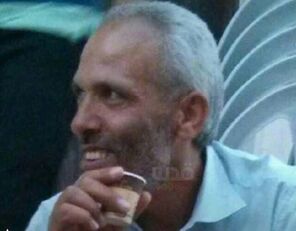
As the police continue to investigate the circumstances leading to the death of Yaqoub Abu al-Qiyan in Umm al-Hiran last month, testimony surfaces from one of the officers who opened fire who insists his warning shots went unheeded; meanwhile, family calls on public security minister and police chief to resign; ‘my brother was murdered.’
One of the policemen who was involved in last month’s shooting of Yaqoub Abu al-Qiyan, a bedouin from Umm al-Hiran, told investigators that he never intended to hit the driver.
The incident occurred on January 18, when a police force arrived on scene to secure illegal home demolitions in the village.
During the operation, a vehicle approached the police force, which roused the officers' suspicion.
They opened fire, injuring the driver, who then sped up in his vehicle and ran over and killed Sgt. Erez Levi, 34, who was on the task force. Al-Qiyan, 47, died later of his wounds.
The officer, who was the first of four to open fire on al-Qiyan’s, vehicle recalled how the incident transpired.
“The car proceeded in the direction of the policemen and didn’t stop, even after they called on him to stop a number of times,” he told the Police Investigation Unit (PIU) after the event. “I fired a warning shot to make him stop.”
The officer also claimed that the bullets were aimed at the car’s wheels and were not intended to hit the driver but rather to warn him. Immediately after, he stated, the vehicle sped up, prompting other officers to open fire.
The investigation of the PIU concluded that the response did not constitute disproportionate use of fire that could have harmed other policemen at the scene.
An official acquainted with the details of the investigation said that a decision had to be taken within a fraction of a second, a fact which he said had to be understood as the reasons mistakes can be made.
“Abu al-Qiyan received many warnings and did not heed them. He continued to drive,” the official stated. “When you are in the field in complete darkness and uncertainty, the policemen operate in a gradual manner and the car kept on travelling in their direction.
“They sensed a clear and immediate life-threatening danger. It could be that from an objective point of view (al-Qiyan) didn’t mean to do anything but what determines the conduct is what a person senses in that same subjective moment.”
In conclusion, the official said: “It isn’t possible to ask the driver what his intention was, but it is expected that the moment there are warning shots, the driver stops.”
Meanwhile the family of al-Qiyan have called upon Public Security Minister Gilad Erdan and Police Commissioner Roni Alsheikh to resign.
The family made the demand on Wednesday following reports that began to circulate indicating that the incident would not be classified as a terror attack.
Ahmed, Yaqoub’s brother, told Ynet that the incident was riddled with mistakes and failures.
“It was an operational failure. There was the accidental killing of the police officer and as a result of this he died. ‘In return’ my brother was murdered,” Ahmed said.
“That is the truth. There was a number of blunders, not one and not two. They were blunders on the part of the police and the policy makers.”
Ahmed went on to say that the “cover-up” of the police should not be believed. “Unfortunately, the police behaved in an irresponsible way, as has the head of the police. I am a bereaved brother and I join the bereaved families in the State of Israel...I am extremely disappointed in the conduct of the police.”
According to Ahmed, Yaqoub asked for help from the policemen before he was shot. “Then they came and shot him and killed him...This whole affair was a crime, and a symptom of the misguided policy and we want to turn it into a seminal event.”
One of the policemen who was involved in last month’s shooting of Yaqoub Abu al-Qiyan, a bedouin from Umm al-Hiran, told investigators that he never intended to hit the driver.
The incident occurred on January 18, when a police force arrived on scene to secure illegal home demolitions in the village.
During the operation, a vehicle approached the police force, which roused the officers' suspicion.
They opened fire, injuring the driver, who then sped up in his vehicle and ran over and killed Sgt. Erez Levi, 34, who was on the task force. Al-Qiyan, 47, died later of his wounds.
The officer, who was the first of four to open fire on al-Qiyan’s, vehicle recalled how the incident transpired.
“The car proceeded in the direction of the policemen and didn’t stop, even after they called on him to stop a number of times,” he told the Police Investigation Unit (PIU) after the event. “I fired a warning shot to make him stop.”
The officer also claimed that the bullets were aimed at the car’s wheels and were not intended to hit the driver but rather to warn him. Immediately after, he stated, the vehicle sped up, prompting other officers to open fire.
The investigation of the PIU concluded that the response did not constitute disproportionate use of fire that could have harmed other policemen at the scene.
An official acquainted with the details of the investigation said that a decision had to be taken within a fraction of a second, a fact which he said had to be understood as the reasons mistakes can be made.
“Abu al-Qiyan received many warnings and did not heed them. He continued to drive,” the official stated. “When you are in the field in complete darkness and uncertainty, the policemen operate in a gradual manner and the car kept on travelling in their direction.
“They sensed a clear and immediate life-threatening danger. It could be that from an objective point of view (al-Qiyan) didn’t mean to do anything but what determines the conduct is what a person senses in that same subjective moment.”
In conclusion, the official said: “It isn’t possible to ask the driver what his intention was, but it is expected that the moment there are warning shots, the driver stops.”
Meanwhile the family of al-Qiyan have called upon Public Security Minister Gilad Erdan and Police Commissioner Roni Alsheikh to resign.
The family made the demand on Wednesday following reports that began to circulate indicating that the incident would not be classified as a terror attack.
Ahmed, Yaqoub’s brother, told Ynet that the incident was riddled with mistakes and failures.
“It was an operational failure. There was the accidental killing of the police officer and as a result of this he died. ‘In return’ my brother was murdered,” Ahmed said.
“That is the truth. There was a number of blunders, not one and not two. They were blunders on the part of the police and the policy makers.”
Ahmed went on to say that the “cover-up” of the police should not be believed. “Unfortunately, the police behaved in an irresponsible way, as has the head of the police. I am a bereaved brother and I join the bereaved families in the State of Israel...I am extremely disappointed in the conduct of the police.”
According to Ahmed, Yaqoub asked for help from the policemen before he was shot. “Then they came and shot him and killed him...This whole affair was a crime, and a symptom of the misguided policy and we want to turn it into a seminal event.”

Amid reports that the investigation is expected to conclude that the incident, in which a Bedouin man and Israeli officer were killed, will not be classified as a terror attack, Roni Alsheikh denies decision has yet been reached: ‘We’ll refrain from addressing the issue before the end of the investigation.’
Police Commissioner Roni Alsheikh addressed reports Wednesday which indicate that the incident in Umm al-Hiran last month—in which a Bedouin man who police say tried to run over soldiers with his car was shot dead—will not be classified as a terror attack.
"I can't be responsible for any unofficial publications. I do know with certainty, from the head of the Police Investigations Unit, that conclusions have yet to be reached," he told Ynet.
"The investigation is underway, and therefore, we will uphold the law, unlike others, and refrain from addressing the issue before the end of the investigation."
“What we knew after the initial report, we told the public. When conclusions are reached, we will address those conclusions," he insisted.
"At the end of the day, we need to judge our officers based on what can be understood of that point in time. I don't know any other details from is known of the incident. When we do, we will address. We, as police, do not offer comments before the investigation ends. And that is what we will continue to do with no regard to attempted manipulations."
The comments come one day after Public Security Minister Gilad Erdan said that authorities and the public should be more cautious in their choice of language when describing suspected terror attacks—particularly those over which confusion persists.
Speaking in reference to the Umm al-Hiran incident, Erdan urged that instead of liberally adopting the term "terror attack," people use the phrase "one-time incident."
He also said that rather than immediately resorting to the word "terrorist," some suspected terrorists should be described as "civilian."
During a visit to the south, Erdan stated that the incident and labels common in the public discourse should not sour relations with the Bedouin community.
"We had a difficult, unfortunate incident a few weeks ago in Umm al-Hiran, and it shouldn't overshadow our relations. No one should be allowed to take this one-time incident, in which unfortunately both a police officer and a civilian were killed, and use it to project on the entire relations between the Bedouin population and Israel's police and government,” he said in an apparent mea culpa.
"Once the Police Investigation Unit wraps up its investigation, we should draw our conclusions and take it from there. We should strengthen our relations with the dear Bedouin population, with whom we wish to live in peaceful coexistence in the Negev," said Erdan.
The incident occurred on January 18, when a police force arrived on scene to secure illegal home demolitions in the village.
During the operation, a vehicle approached the police force, which roused the officers' suspicion. They opened fire, injuring the driver, who then sped up in his vehicle and ran over and killed Sgt. Erez Levi, 34, who was on the task force. The driver, 47-year-old Yaqoub Abu al-Qiyan, died later of his wounds.
Police claimed after the incident that the vehicle was speeding without lights, and that they fired warning shots at first.
A short while after the incident, prior to any orderly investigation, police and Erdan rushed to label it as a "terror attack" and the driver, "as a terrorist."
An hour after the incident, police announced that "the terrorist is an active member of the Islamic Movement and his affiliation to ISIS is being examined." The Shin Bet, on the other hand, stated that no affiliation could be found linking him with the terror organization.
The family of the driver, who was a teacher and father of 15, claimed from the very first moment that he was an honest man, and that he was "murdered in cold blood."
According to the family, "he had already packed his belongings and was planning to evacuate his home without a fuss."
As time passed, the version of the police and the Interior Ministry began to crumble. Al Jazeera exposed footage which appeared to show that al-Qiyan had his lights on, which contradicted the police officers' statement.
A video that aired on Channel 10 news allegedly validated the claim that the shooting toward al-Qiyan occurred prior to his speeding toward the officers, thus rebutting another one of the officers' claims.
The police had stated earlier that "the vehicle was speeding in an unmistakable manner, hitting the officers. A vehicle careening toward police officers has an intention to kill."
The driver's cousin criticized the police's conduct: "Erdan was quick to respond, perhaps since the Police Commissioner or the commander on site misled him. Erdan wasn't around and received misleading reports. Two innocent people were killed in this incident, and someone has to pay the price—the minister, the commissioner or the on-site commander."
The findings from the ongoing investigation eventually revealed that the incident was probably not a terror attack, and that there were serious operational failures in the police officers' conduct.
Investigators conmcluded that the warning shots toward the vehicles were premature, and the police officers' fire was disproportionate, which could have incurred multiple injuries among their own forces as they failed to take into account the officers' location.
The officers who opened fire insisted however that they felt threatened, and that they interpreted the situation at the time as one of dangerous.
Investigators noted that it was dark, which made identifying the location of other police forces and possible threats in the area much more difficult.
They also pointed out that Sgt. Erez Levi, was killed as a result of being run over by Abu al-Qiyan's vehicle and not as a result of gunshots.
Despite the evidence, which has yet to be officially released, the Police Commissioner Roni Alsheikh addressed the reports that the incident will not be classified as a terror attack.
"I can't be responsible for any unofficial publications. I do know with certainty, from the head of the Police Investigations Unit, that conclusions have yet to be reached," he told Ynet.
"The investigation is underway, and therefore, we will uphold the law, unlike others, and refrain from addressing the issue before the end of the investigation."
The final results are expected to be released shortly, following the analysis of various ballistic tests.
Police Commissioner Roni Alsheikh addressed reports Wednesday which indicate that the incident in Umm al-Hiran last month—in which a Bedouin man who police say tried to run over soldiers with his car was shot dead—will not be classified as a terror attack.
"I can't be responsible for any unofficial publications. I do know with certainty, from the head of the Police Investigations Unit, that conclusions have yet to be reached," he told Ynet.
"The investigation is underway, and therefore, we will uphold the law, unlike others, and refrain from addressing the issue before the end of the investigation."
“What we knew after the initial report, we told the public. When conclusions are reached, we will address those conclusions," he insisted.
"At the end of the day, we need to judge our officers based on what can be understood of that point in time. I don't know any other details from is known of the incident. When we do, we will address. We, as police, do not offer comments before the investigation ends. And that is what we will continue to do with no regard to attempted manipulations."
The comments come one day after Public Security Minister Gilad Erdan said that authorities and the public should be more cautious in their choice of language when describing suspected terror attacks—particularly those over which confusion persists.
Speaking in reference to the Umm al-Hiran incident, Erdan urged that instead of liberally adopting the term "terror attack," people use the phrase "one-time incident."
He also said that rather than immediately resorting to the word "terrorist," some suspected terrorists should be described as "civilian."
During a visit to the south, Erdan stated that the incident and labels common in the public discourse should not sour relations with the Bedouin community.
"We had a difficult, unfortunate incident a few weeks ago in Umm al-Hiran, and it shouldn't overshadow our relations. No one should be allowed to take this one-time incident, in which unfortunately both a police officer and a civilian were killed, and use it to project on the entire relations between the Bedouin population and Israel's police and government,” he said in an apparent mea culpa.
"Once the Police Investigation Unit wraps up its investigation, we should draw our conclusions and take it from there. We should strengthen our relations with the dear Bedouin population, with whom we wish to live in peaceful coexistence in the Negev," said Erdan.
The incident occurred on January 18, when a police force arrived on scene to secure illegal home demolitions in the village.
During the operation, a vehicle approached the police force, which roused the officers' suspicion. They opened fire, injuring the driver, who then sped up in his vehicle and ran over and killed Sgt. Erez Levi, 34, who was on the task force. The driver, 47-year-old Yaqoub Abu al-Qiyan, died later of his wounds.
Police claimed after the incident that the vehicle was speeding without lights, and that they fired warning shots at first.
A short while after the incident, prior to any orderly investigation, police and Erdan rushed to label it as a "terror attack" and the driver, "as a terrorist."
An hour after the incident, police announced that "the terrorist is an active member of the Islamic Movement and his affiliation to ISIS is being examined." The Shin Bet, on the other hand, stated that no affiliation could be found linking him with the terror organization.
The family of the driver, who was a teacher and father of 15, claimed from the very first moment that he was an honest man, and that he was "murdered in cold blood."
According to the family, "he had already packed his belongings and was planning to evacuate his home without a fuss."
As time passed, the version of the police and the Interior Ministry began to crumble. Al Jazeera exposed footage which appeared to show that al-Qiyan had his lights on, which contradicted the police officers' statement.
A video that aired on Channel 10 news allegedly validated the claim that the shooting toward al-Qiyan occurred prior to his speeding toward the officers, thus rebutting another one of the officers' claims.
The police had stated earlier that "the vehicle was speeding in an unmistakable manner, hitting the officers. A vehicle careening toward police officers has an intention to kill."
The driver's cousin criticized the police's conduct: "Erdan was quick to respond, perhaps since the Police Commissioner or the commander on site misled him. Erdan wasn't around and received misleading reports. Two innocent people were killed in this incident, and someone has to pay the price—the minister, the commissioner or the on-site commander."
The findings from the ongoing investigation eventually revealed that the incident was probably not a terror attack, and that there were serious operational failures in the police officers' conduct.
Investigators conmcluded that the warning shots toward the vehicles were premature, and the police officers' fire was disproportionate, which could have incurred multiple injuries among their own forces as they failed to take into account the officers' location.
The officers who opened fire insisted however that they felt threatened, and that they interpreted the situation at the time as one of dangerous.
Investigators noted that it was dark, which made identifying the location of other police forces and possible threats in the area much more difficult.
They also pointed out that Sgt. Erez Levi, was killed as a result of being run over by Abu al-Qiyan's vehicle and not as a result of gunshots.
Despite the evidence, which has yet to be officially released, the Police Commissioner Roni Alsheikh addressed the reports that the incident will not be classified as a terror attack.
"I can't be responsible for any unofficial publications. I do know with certainty, from the head of the Police Investigations Unit, that conclusions have yet to be reached," he told Ynet.
"The investigation is underway, and therefore, we will uphold the law, unlike others, and refrain from addressing the issue before the end of the investigation."
The final results are expected to be released shortly, following the analysis of various ballistic tests.
14 feb 2017
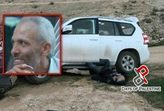
New footage aired on Israeli TV would appear to show that Israeli police intentionally murdered the Israeli-Arab citizen Yaqoub Abu al-Qee’an.
The footage shows that Abu al-Qee’an, who ran over an Israeli policeman during a protest against home demolitions in Umm al-Hiran, speeding towards the group of officers only after they opened fire at him.
According to Days of Palestine, Israeli occupation police accused Abu al-Qee’an of intending to carry out a terror attack against them, but this video gives further credit to the premise he did not intend to do so.
The video, broadcast on Channel 10, Saturday, shows Abu al-Qee’an slowly approaching the officers with his vehicle and the officers then opening fire on him.
After the footage was aired, it was given to the police investigation unit for inspection as part of the investigation into the January 18 incident.
An autopsy performed on Abu al-Qee’an, at the Institute of Forensic Medicine, found that he had suffered a bullet wound in his knee, causing him to step on the gas pedal. According to some assessments, this bullet to the leg may have been what caused him to accelerate.
The autopsy report further revealed that a gunshot to al-Qee’an’s chest caused a massive hemmorage which lasted for 20 to 30 minutes.
By the time Israeli paramedics were permitted to provide him with treatment, all they could do was declare the man dead. It is possible that he would have survived, had medical teams been permitted to treat him sooner.
The footage shows that Abu al-Qee’an, who ran over an Israeli policeman during a protest against home demolitions in Umm al-Hiran, speeding towards the group of officers only after they opened fire at him.
According to Days of Palestine, Israeli occupation police accused Abu al-Qee’an of intending to carry out a terror attack against them, but this video gives further credit to the premise he did not intend to do so.
The video, broadcast on Channel 10, Saturday, shows Abu al-Qee’an slowly approaching the officers with his vehicle and the officers then opening fire on him.
After the footage was aired, it was given to the police investigation unit for inspection as part of the investigation into the January 18 incident.
An autopsy performed on Abu al-Qee’an, at the Institute of Forensic Medicine, found that he had suffered a bullet wound in his knee, causing him to step on the gas pedal. According to some assessments, this bullet to the leg may have been what caused him to accelerate.
The autopsy report further revealed that a gunshot to al-Qee’an’s chest caused a massive hemmorage which lasted for 20 to 30 minutes.
By the time Israeli paramedics were permitted to provide him with treatment, all they could do was declare the man dead. It is possible that he would have survived, had medical teams been permitted to treat him sooner.
12 feb 2017
|
|
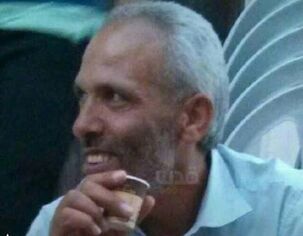
New video aired on Channel 10 shows that Yaqoub Abu al-Qiyan, the driver who ran over and killed Sgt. Erez Levi during a violent protest against home demolitions in the Bedouin village, only started speeding into the group of officers after they opened fire on him.
New footage aired shows that Yaqoub Abu al-Qiyan, who ran over and killed Sgt. Erez Levi during protest against home demolitions in Umm al-Hiran, started speeding towards the group of police officers only after they opened fire at him, giving further credit to the claim he did not intend to carry out a terror attack. The video, broadcast on Channel 10 on Saturday, shows al-Qiyan slowly |
approaching the officers with his vehicle. The officers are then seen opening fire on him, following which the vehicle started speeding towards them, hitting Sgt. Levi and killing him.
The footage was given to the Police Investigation Unit (PIU) for inspection as part of the investigation into the January 18 incident.
An autopsy performed on al-Qiyan at the Institute of Forensic Medicine found that he suffered a bullet wound in his knee, causing him to step on the gas pedal. According to some assessments, this bullet to his leg may have been what caused him to accelerate.
Another detail that the autopsy report revealed is that a gunshot to al-Qiyan's chest caused massive bleeding that lasted for 20 to 30 minutes. By the time Magen David Adom (MDA) paramedics were permitted to provide him with medical treatment, all they could do was declare the man dead. It is possible that al-Qiyan would have survived had medical teams been permitted to treat him sooner.
PIU are currently investigating the footage, the report and any ties al-Qiyan could have had to Muslim extremists that could have lead him to perform this act.
The footage was given to the Police Investigation Unit (PIU) for inspection as part of the investigation into the January 18 incident.
An autopsy performed on al-Qiyan at the Institute of Forensic Medicine found that he suffered a bullet wound in his knee, causing him to step on the gas pedal. According to some assessments, this bullet to his leg may have been what caused him to accelerate.
Another detail that the autopsy report revealed is that a gunshot to al-Qiyan's chest caused massive bleeding that lasted for 20 to 30 minutes. By the time Magen David Adom (MDA) paramedics were permitted to provide him with medical treatment, all they could do was declare the man dead. It is possible that al-Qiyan would have survived had medical teams been permitted to treat him sooner.
PIU are currently investigating the footage, the report and any ties al-Qiyan could have had to Muslim extremists that could have lead him to perform this act.


